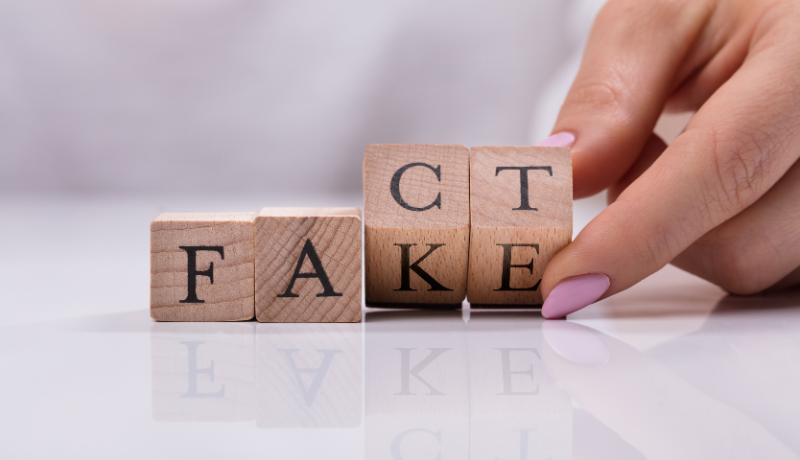Staying credible: how to combat a cacophony of fake news
By Danny Ward
I n 2017, the term “fake news” was Collins Dictionary’s word of the year.
Nowadays, fake news is commonly categorised into mis- and dis-information, and continues to be the focus of widespread concern across the internet and social media. It was only last August that Meta rolled back its commitment to tackling misinformation – a regressive step that showed us the issue was not going to be stamped out any time soon.
Most people – even the most sceptical of us – will have had the wool pulled over our eyes at some point. According to an Ipsos survey, half of 16-34 year olds say they trust news from online influencers, even with concerns about ‘widespread fake news.
But it’s not just the young who can be naive. The journal Science published research showing that we are also more likely to get sucked in and spread false information the older we are. On average, Facebook users over 65 were found to be almost four times more likely to have shared fake news on the platform than 18-29 year olds.
With this in mind, brands need to be wary of being seen to be contributing to the spread of factually incorrect information — whether consciously or inadvertently. It’s therefore more important than ever that brands and aspiring thought leaders alike consider whether the information they are pushing out will be viewed as credible.
So how do you navigate the credibility crisis? Here are few tips:
- Have you done your research? – before you comment on any news stories, why not use the BBC’s measure as a rule of thumb – do you have more than one reputable source to base your statements on?
- Talk about what you know – as a thought leader, make sure you are able to demonstrate a complete grasp of the subject matter you’re discussing. If you shoot from the hip on an issue you haven’t thought through, or where you have little experience or expertise, you run the risk of landing yourself in deep water.
- Link to trusted websites – adding citation links to relevant articles on reputable websites will allow people to verify the information you’re sharing. You also benefit by showing the reader you’ve done your homework.
- Collaborate with an influencer – if you’re producing original content, consider including an independent, unbiased, third party to corroborate what you’re saying. This will help establish credibility and counteract any doubtful ‘you would say that’ comments.
- Be prepared to accept criticism – in truth, most people worry about criticism too much, and this can lead to complete paralysis. However, to stand out from the crowd, you often need to be bold and be ready to ruffle a few feathers. You just need to be prepared for the possible responses. If in doubt, consult with an experienced PR consultant!
But don’t worry, as people become increasingly critical of the sources from which they get their information, genuine knowledge will become more highly valued and sought after. If you’re a B2B brand with genuine expertise, for example, you will undoubtedly have a great deal of advice you can offer people in your industry, So, you shouldn’t be discouraged by the prevalence of fake news. People will always be prepared to listen to authoritative thought leaders when they have something important to say.
Share this:





